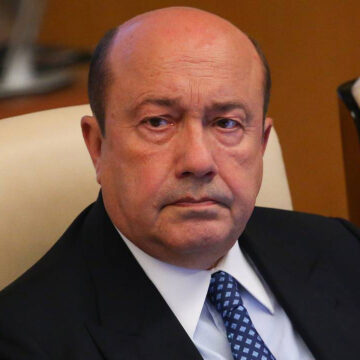Today, the whole world is following the dramatic events unfolding around North Korea with great attention. Politicians and experts, journalists and diplomats are increasingly alarmed about the possible catastrophic consequences of the current crisis — not only for the Korean Peninsula, but for the system of world politics in general. Numerous statements and comments leave a depressing sense of hopelessness, a complete impasse in trying to find a solution to the problem.
On the one hand, it seems that everyone — except perhaps the most irresponsible American hawks — is well aware that this issue does not have a military solution. On the other hand, there seems to be no way to launch a mechanism of negotiations that would allow to bring the solution of the problem into the mainstream of political dialog. Some initiatives are being put forward, but they fail to bring down the tension yet.
Is the situation that hopeless? Russian President Vladimir Putin wrote in his recent article: “…the policy of putting pressure on Pyongyang to stop its nuclear missile program is misguided and futile. The problems of the region should only be settled through a direct dialogue of all the parties concerned without any preconditions. Provocations, pressure, and militarist insulting rhetoric are a dead-end road”. This conclusion is based both on the political experience of negotiations on Iran’s nuclear program and on direct negotiations with the DPRK, that were actively held in the early 2000s. I had an opportunity to take part in them.
I want to remind that in the late 1990s the situation around North Korea was also heated — and more than once. And the leader of the country Kim Jong-il was not the best negotiator on nuclear issues. Like now, there were hotheads in Washington calling for a «military solution» to the North Korean nuclear issue. But in those conditions the leaders of the great powers had the political will, endurance, and patience to seek political compromise.
Russia then took the lead. And in February 2000, the Treaty on Friendship, Good-Neighborliness and Cooperation between Russia and the DPRK was signed in Pyongyang. In July 2000, on the explicit invitation of Kim Jong-il, which was an unprecedented event, Russian President Vladimir Putin paid an official visit to the DPRK. The two leaders held lengthy negotiations on a wide range of international issues, including, of course, nuclear issue. From Pyongyang, the Russian President went to Okinawa to participate in G8 Summit, where, with firsthand information, he was a keynote speaker in discussions on the Korean issue.
The Russian example caught up fast. Foreign emissaries started visiting Pyongyang, the inter-Korean dialogue intensified. In October 2000, the U.S. Secretary of State M. Albright visited the DPRK to meet with the country leader, Kim Jong-il, and, among other issues, discussed the possible visit of the U.S. President Bill Clinton to Pyongyang.
The mechanism of Six-Party Talks on the ways to resolve the crisis around the North Korean nuclear program (with Russia, China, the United States, Japan, South Korea and the DPRK involved) was successfully launched. In the course of several rounds of negotiations the parties discussed specific conditions for ensuring non-nuclear status of the Korean peninsula.
Unfortunately, the new administration led by President George W. Bush taking office in the United States in early 2001 put an end to these positive efforts of the international community. The issue was stymied again. We are now all watching with frustration what this has led to.
I want to emphasize that a simple solution to the DPRK nuclear issue cannot be found. Threats and sanctions do not help to resolve it. The main efforts of the international community should now be directed to an immediate start of a direct dialogue with Pyongyang on the whole range of issues related to ensuring regional security, including, of course, the establishment of nuclear-free status of the Korean peninsula. As noted, there has been experience of constructive interaction with the North Korean leadership. Russia and China have come forward with a joint initiative to resolve the issues of the Korean peninsula, including the nuclear issue, for the sake of lasting peace and stability in Northeast Asia. This initiative might become a good basis for the start of negotiations with the Korean leader Kim Jong-un. The Six-Party Talks negotiation format also already exists (if needed, it can be updated).
Therefore, the reasoning that the North Korean nuclear issue does not have a political solution actually means that the advocates of such position simply do not have the desire to seek solutions or work on their implementation. As the old German proverb says: “Where there is a will, there is a way” (Wo ein Wille ist, ist auch ein Weg).










